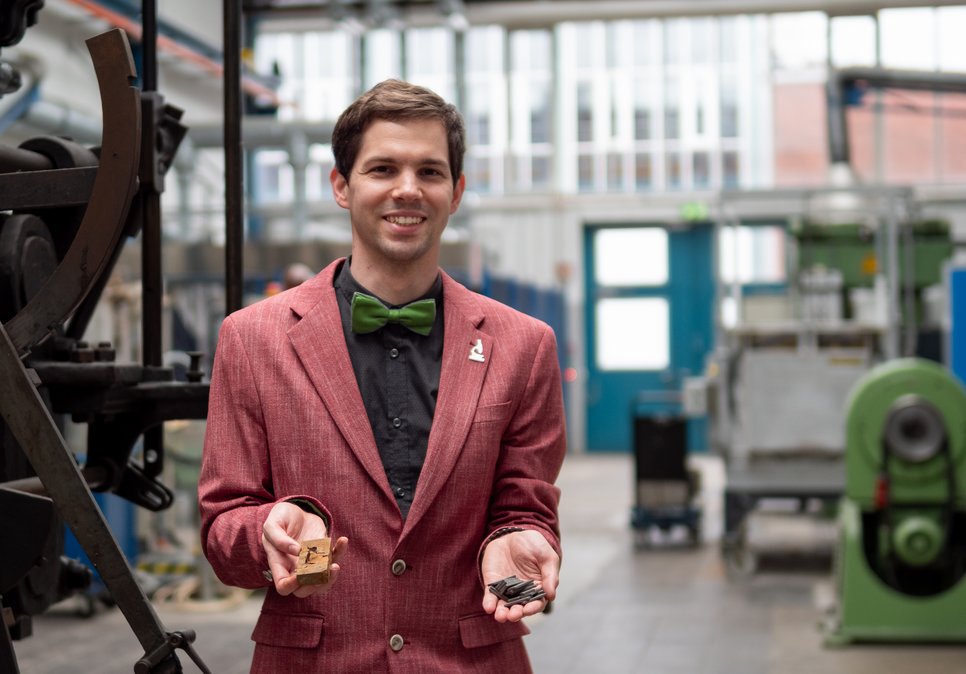Sustainable magnets: from synthesis to recycling
Dr.-Ing. Matic Jovičević-Klug heads new MPIE research group
Magnetic materials are essential for electrifying our infrastructures and thus decarbonizing our society. Their market share of currently 40 billion euros is steadily increasing as they are needed for electric motors, transformers and sensors. Meanwhile, two main challenges exist in terms of sustainability and accessibility: magnets currently strongly rely on rare-earth and expensive elements in their production and cannot be efficiently recycled. The new group “Sustainable Magnets and Recycling” led by Matic Jovičević-Klug at the Max-Planck-Institut für Eisenforschung (MPIE), will take a holistic approach combining sustainable material extraction, production and recycling, to tackle these challenges.

“One of our main research goals is to find highly-efficient and low-cost ways to recycle as much magnetic scrap and waste materials as possible. When magnets are oxidized or mixed with impurities, recycling becomes considerably difficult. Presently, the only way to recycle such oxidized or strongly contaminated magnets on an industrial scale is through hydrometallurgical processing. However, this method has its drawbacks: it is carbon-intensive, costly and uses excessive amounts of hazardous chemicals. Addressing this recycling challenge could pave the way to develop novel solutions applicable to other domains, such as electronics, batteries, as well as waste and byproducts generated by diverse processes”, explains Jovičević-Klug. When it comes to synthesising permanent magnets, the main challenge is the considerable need for rare earth elements. Introducing alternatives that rely solely on abundant resources would improve sustainability as well as decrease the dependence on imported rare-earth materials. Currently, the main challenge of alternative magnets is to control the magnets’ microstructure and chemistry to attain the desired magnetic properties comparable to those available currently on the market. The new research group tackles this challenge by investigating various material systems using new synthesis and post-production routes, aiming to tailor magnets.
Jovičević-Klug joined MPIE in 2021 as a postdoctoral researcher. He did his PhD in Materials Science and Engineering at the University of Kiel (Germany) in 2019. His research focusses on finding ways to decarbonize the metal industry using for example hydrogen and hydrogen plasma. Moreover, he explores how the thermal processing of alloys influences their microstructure, surface and properties. He recently started a new collaborative project with the Fraunhofer Research Institution for Materials Recycling and Resource Strategies on the sustainable synthesis and recycling of permanent magnets.
